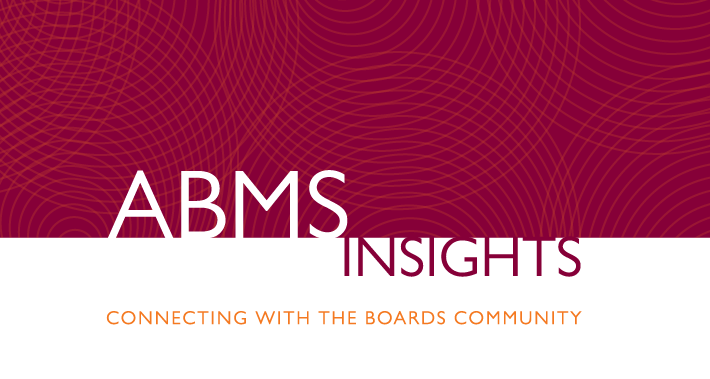
American Board of Medical Specialties (ABMS) Member Boards find ways to gain public perspectives beyond appointing public members to serve on their Boards of Directors or Trustees.

Some Member Boards engage with the public through their specialty societies. The American Board of Obstetrics and Gynecology (ABOG) collaborates with specialty societies regarding the public member input that they receive about the practice of obstetrics and gynecology, and related health outcomes. This interaction allows ABOG to ensure that its content is responsive to public health needs, relevant, and current. Among the societies with which ABOG engages are the Society of Family Planning, Society of Gynecologic Oncology, Society for Maternal-Fetal Medicine, and American Urogynecologic Society.
The American Board of Allergy and Immunology solicits input about strategic planning from public stakeholders through patient advocacy groups, including the Food Allergy Research & Education, Allergy and Asthma Foundation of America, and American Partnership for Eosinophilic Disorders. The American Board of Colon and Rectal Surgery, which is in the process of soliciting a public member to serve on its Board of Directors, is a member of One Colorectal, a community of organizations that represents specialty societies. The community offers many mechanisms to learn about patients’ concerns, including the American Society of Colon and Rectal Surgeons’ Communications and Professional Outreach committees.
Patient-focused websites are another mechanism some Member Boards use to interact with the public. For example, ABOG and the American Boards of Ophthalmology and Orthopaedic Surgery engage with the public by sharing patient experiences and providing information about the value of board certification on their respective patient websites.
In addition, Member Boards periodically conduct surveys or host focus groups. Last year, the American Board of Emergency Medicine (ABEM) commissioned the ABEM/Harris Poll to better understand Americans’ opinions about emergency physician board certification and the frequency of continuing certification activities. While 76 percent of respondents believe it is very important that an emergency physician be board certified, 98 percent believe that it’s necessary to retest emergency physicians to maintain certification. Also in 2023, the American Board of Pediatrics promoted a survey open to the public asking for comments about proposed changes to its vision, mission, values, and goals.
The American Board of Ophthalmology periodically conducts patient experience sessions. The last one conducted in the Minneapolis area focused on understanding patient expectations about their ophthalmologist’s knowledge and care delivery, what it’s like being a patient navigating various ophthalmologic conditions, and what resources they use and trust to find information about their physicians. The American Board of Neurological Surgery, which doesn’t have a public member on its Board of Directors, invites public guests to attend its annual strategic planning retreat. Individuals are chosen based on their own professional expertise about the topic(s) to be addressed. The American Board of Psychiatry and Neurology (ABPN), which doesn’t have a public member on its Board, will host its first Public Advisory Forum this April. The forum is designed to help ABPN leadership learn about the viewpoints, experiences, and goals of the various public constituencies represented by the public attendees and conversely inform attendees about specialty board certification and ABPN’s mission, goals, and activities.
Soliciting input from the public helps bring together the medical profession and the patients they serve, resulting in better policies and initiatives for all parties.
-
Read More:
- ABMS Insights |
- Member Boards |
